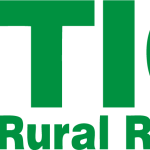This is Dr. Nathan Mueller, your local agronomist for Nebraska Extension. From April 10 to May 5, we have accumulated 235 growing degree days here in Fremont and the 30-year average is 200. A question I get every spring after corn has been planted is “How many Growing Degree Days does it take for my corn to emerge?”
The general assumption is 120 growing degree days or abbreviated GDDs for corn to emerge under favorable conditions. However, we know that some planting practices and environmental conditions can decrease or increase the amount of growing degree days needed for corn to emerge. We use the growing degree day calculation, which is based on air temperatures to estimate how long it will take for corn to emerge even though soil temperatures are the driving factor.
Planting practices that change the amount of growing degree days for corn to emerge include planting date, depth, and residue cover.
- It take about 10-25 more GDDs for emergence with early planting dates.
- Planting deeper than 2 inches will increase the number of GDDs to emergence by about 15.
- More than 75% residue cover increases the GDDs needed for emergence, ranging from 30 to 60 GDDs more.
The soil moisture, condition, and texture change the needed growing degree day for corn to emerge too.
- Dry seed bed conditions will require more GDDs
- Crusted or cloddy soils can increase GDDs by 30 more.
- Lastly, heavier textured soils require more GDDs for corn emergence than do coarse textured soils.
So the amount of growing degree days from planting to corn emergence can range easily range from 90 to 200. Corn genetics also can affect this estimation. Even after the corn plant emerges, soil temperature still affects growth development until the 6th collar growth stage.
To learn more about corn emergence, call me at 727-2775 or visit our local website at croptechcafe.org to listen to this radio message again. Know your crop, know your tech, know your bottom line. This is Dr. Nathan Mueller, your local agronomist for Nebraska Extension on KTIC radio.
Information in this radio message was based on Corn Development and the U2U Decision Support Tools – Corn GDD



